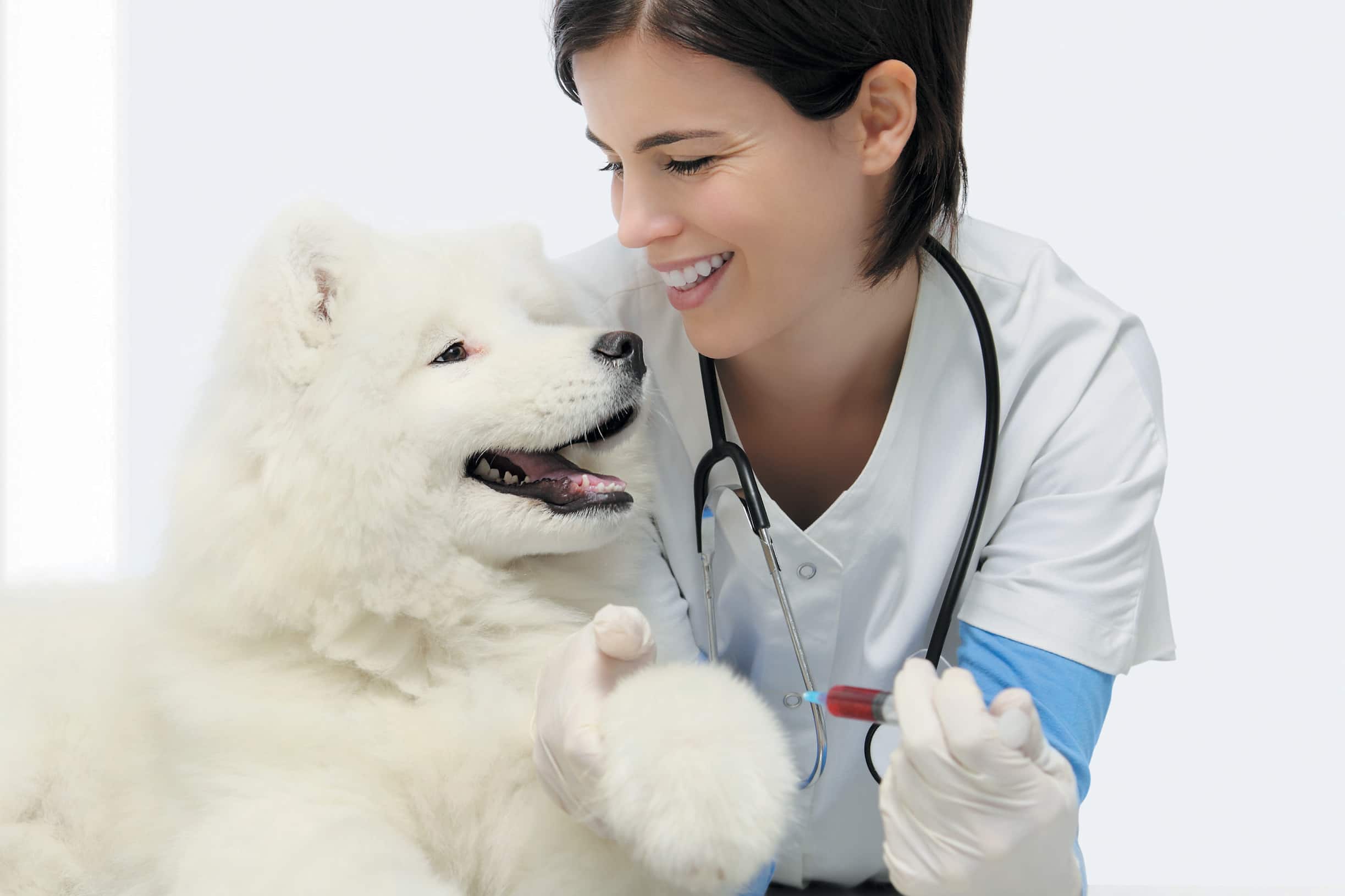Our dogs do not live in protective bubbles that shield them against injuries or illnesses. Just like us, they are exposed to lots of contagious agents, cope with age-related conditions like arthritis and may even be prone to an assortment of allergens.
There are times when our dogs need vaccinations as well as pills or injections to keep them at their healthy best. But which ones? And what are the possible side effects? For answers, we turned to a pair of veterinarians who are medication and vaccine experts for our canine pals: Heather Loenser, DVM, veterinary advisor for the American Animal Hospital Association, and Debra Eldredge, DVM, author of the best-selling book, Pills for Pets.
Today’s vaccinations

In September 2017, the AAHA released its first canine vaccination guidelines since 2011. This veterinary association emphasized the importance of factoring each dog’s risk factors, age and lifestyle in determining appropriate vaccinations and booster shots.
AAHA also reviewed the dose and frequency of vaccinations as well as the merit of titer testing in lieu of automatically just giving vaccination boosters for dogs to protect against contagious diseases like distemper and parvovirus. (Learn more by visiting AAHA’s link)
Dr. Loenser emphasizes that vaccination is one of the easiest and most vital ways to protect your dog’s health but agrees it can be confusing on which ones your dog needs. But for the rabies vaccine, you have no flexibility: State laws mandate your dog receive regular rabies vaccinations.
“Vaccination schedules have changed over the years with increasing knowledge about immunity,” Dr. Eldredge notes. “Distemper, parvovirus and rabies are essential for every dog. But it is also important to customize a vaccine schedule for each dog. For example, if your dog lives in an area with lots of ticks and a high prevalence of Lyme disease, giving that vaccine makes sense for your dog.”
Vaccinations fall into two camps: core and noncore. Core vaccinations are considered essential for all dogs. Noncore vaccinations are recommended based on a dog’s age, location and lifestyle. If your dog does have a reaction to one of these vaccines, discuss possible options with your veterinarian.
Let’s look at these key vaccinations, what they are used for and concerns:
1. Core vaccines
Rabies vaccine is required by law to protect dogs from this often fatal viral disease spread by infected animals through bites and scratches. Signs of vaccine reactions can surface immediately or within a few days and can include fever, hives, swollen lymph nodes, vomiting, tenderness and diarrhea.
Canine DA2PPC vaccine is a combination vaccine designed to protect dogs from distemper, adenovirus (hepatitis), parainfluenza and parvovirus. There is no medicine available currently to destroy the distemper virus, so regular vaccinations are scheduled throughout a dog’s life. However, some dogs experience severe allergic reaction, vomiting, diarrhea, itching, seizures and other symptoms following vaccination.
2. Noncore Vaccines
Bordetella vaccine is given to protect a dog from this infectious respiratory disease that can quickly spread in boarding kennels and doggie day cares. Such facilities require proof that your dog is immunized every six months. Reaction to the vaccine can include swelling, mild fever, sneezing or nasal discharge, reduced appetite, respiratory distress and nausea.
Leptospira is rising in importance as states like California have upgraded it to be a core vaccine. The vaccine must be given annually to protect dogs from leptospirosis, life-threatening hardy bacteria found in infected urine and contaminated soil or water. Common reactions include fatigue and a lack of appetite.
Canine lyme borreliosis vaccine battles a tick-borne bacteria condition often spread by deer ticks. It is more prevalent in the East Coast and is not a reportable disease. Common side effects after vaccination include mild fatigue, diarrhea, swelling at the site of injection or facial swelling.
Canine influenza vaccines for two strains (H3N8 and H3N2) are among the newest vaccines to protect dogs from these types of flu that can cause coughing, sneezing and even pneumonia. Neither vaccine will completely prevent your dog from developing either type of canine flu. Side effects to the vaccine include vomiting, diarrhea, facial swelling, pain at the injection site and respiratory distress.
Common canine medications

Odds are strong that your dog will also need medications sometime in his lifetime to fend off pain and other symptoms caused by injuries or diseases. Topping the list are medications for allergies, anxiety, arthritis, diabetes, gastrointestinal upset and pain. “All medications have risks and benefits,” Dr. Loenser says. Fortunately, strides have been made in pain medication for dogs in the past decade.
Dr. Loenser says, “There are multiple FDA-approved medications now that help alleviate pain in pets to treat many issues from serious nerve pain to cancer pain. Because pets can’t understand why they hurt and can’t become drug-seeking addicts, treating their pain as aggressively as possible is a priority for me as a veterinarian.”
Non-steroidal anti-inflammatory drugs (NSAIDs), opioids, local anesthetics and other medications are now used to help dogs feel comfortable as they heal from injuries and deal with chronic painful conditions. In addition, the AAHA updated its pain management guidelines for dogs in 2015 and now recommends complementary therapies, including acupuncture, physical rehabilitation and weight management.
“The best news is that today we have many options for pain medications for dogs,” Dr. Eldredge says. “For long-term use, it is important to do blood work before starting these drugs and do periodic checks to evaluate liver and kidney function.”
The parting message from both veterinarians: Work closely with your own veterinarian to pick the appropriate vaccinations for your dog, to always give your dog the full amount of medicine prescribed and to immediately report any displays of adverse reactions in your dog.
“With proper encouragement and tasty treats, dogs can look forward to getting all kinds of medications, pills and even injections,” Dr. Loenser says. “Your dog is depending on you to make sure he stays as healthy as possible.”
Thumbnail: Photography ©Visivasnc | Getty Images.
Editor’s note: This article appeared in Puppies, a special issue from Dogster magazine. Look for Puppies on a newsstand near you!
About the author
Arden Moore, The Pet Health and Safety Coach™, is a pet behavior consultant, master certified pet first aid instructor, author and host of the Oh Behave Show on Pet Life Radio. Learn more at ardenmoore.com.





